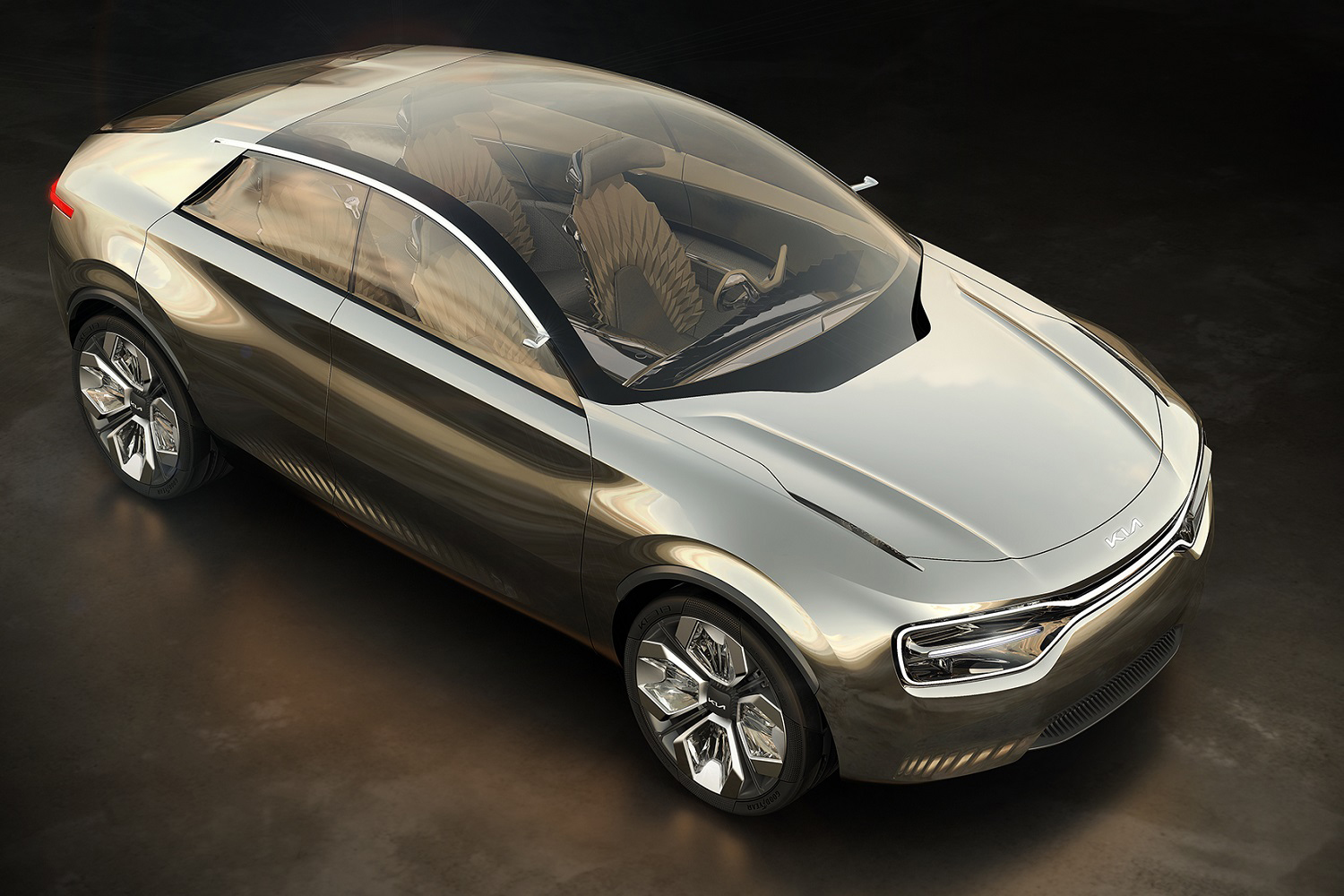
Kia is getting serious about electric cars. After launching a pair of electric models based on existing small hatchbacks, the Korean automaker looks set to launch its first electric car based on a clean-sheet design. That car will be based on the Imagine concept first seen at the 2019 Geneva Motor Show, and will go into production in 2021, a Kia executive said in an interview with Automotive News Europe.
Emilio Herrera, COO of Kia’s European operations, confirmed the plans, but didn’t offer any details on how the Imagine would change as it made the transition from concept car to production model. The Imagine blends sedan and crossover styling elements, similar to the Polestar 2 from Volvo’s new upscale division. The car is close in size to compact models like the Volkswagen Golf or Kia’s own Forte, meaning it will likely compete with VW’s upcoming compact electric cars.
The Imagine concept had some tech features that were great for getting attention on an auto show stand, but may not be suitable for production. The concept car’s interior was filled with 21 screens, for example. Kia also replaced the exterior mirrors with cameras, which is legal in Europe and other markets, but not in the United States. Kia never discussed any technical details of the original Imagine concept, so it’s unclear what to expect from the production model.
It’s also difficult to predict if the new electric car will be sold in the U.S., or when it might arrive. Kia hasn’t discussed plans for U.S. sales, and has already delayed the U.S. launch of the second-generation Soul EV by about two years. The Soul EV is already available in Europe, but won’t reach U.S. showrooms until 2021. Kia is allocating more cars to Europe in anticipation of stricter emissions standards. The only Kia electric car currently sold in the U.S. is the Niro EV.
Kia and parent Hyundai plan to launch 13 new or updated hybrid, plug-in hybrid, or all-electric models by 2022. In addition to the Imagine-based electric car, Kia will launch its first production hydrogen fuel cell vehicle in late 2020 or early 2021, Herrera said in his Automotive News Europe interview. Kia parent Hyundai already sells the hydrogen-powered Nexo, so the unnamed Kia model could borrow from that. In Europe, at least, the Kia Sorento crossover will also get hybrid and plug-in hybrid powertrains, Herrera said.
Editors' Recommendations
- Don’t let the gimmicks fool you. The Ioniq 5 N is a serious track car
- Genesis turns up the heat with GV60 Magma concept
- Porsche’s most powerful production car is an EV
- The Kia EV9 is the template for a modern car interior — here’s why
- Some on Apple’s failed car project reportedly had a cruel name for it


